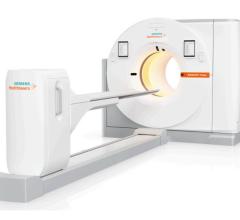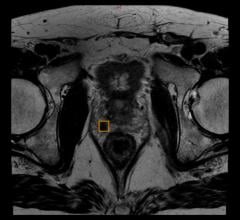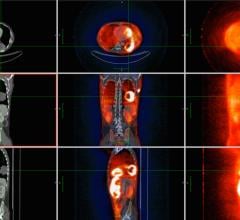June 18, 2008 - Concerned by the growing numbers of people using stimulant medications such as methylphenidate (MP)—either legally or illegally—to improve attention and focus, researchers used positron emission tomography (PET) imaging with the radiotracer fluorodeoxyglucose (FDG) to assess the effects of the drug on brain function in the normal human brain.
“MP is often prescribed appropriately for individuals with attention deficit hyperactivity disorder (ADHD), who are unable to focus their minds in order to perform everyday tasks,” said Nora Volkow, M.D., director of the National Institute of Drug Abuse in Bethesda, Md. “We wanted to better understand how the drug works in ‘normal, healthy’ people when they are performing a cognitive task, as well as when they are not.”
The study comprised 23 healthy adults, who were tested at baseline and while performing an accuracy-controlled cognitive task (numerical calculations) and also when viewing cards with nature scenes. Participants were imaged both before and after receiving an oral dosage of 20 milligrams of MP. The PET FDG scans showed a significant increase in regional brain glucose utilization when subjects performed the cognitive task, but the increases were significantly greater when they did the task while on placebo as opposed to when they did the task while on MP. The increases in brain glucose metabolism induced by the task were almost 50 percent lower when they were performed with MP than with the placebo. In contrast, when MP was given in a neutral condition (no cognitive task), brain glucose utilization did not change, indicating that its effects are dependent on the context of administration.
“The brain uses glucose as the main source of energy and increases its utilization in proportion to the level of activity. Therefore, the decrease in the amount of glucose required by the brain to perform the cognitive task with MP suggests that one of MP’s mechanisms is to make the brain more efficient,” said Volkow.
The researchers noted that in those individuals who performed well without the stimulant, MP improved performance, whereas in those who performed poorly without medication (who were given a placebo), their performance deteriorated further upon receiving the drug.
“The data suggest that the effects of MP are dependent on the individual’s performance, and since people take these medications in order to improve performance, they need to recognize that for some, performance will deteriorate,” said Volkow.
In addition to deterioration of brain function efficiency, Volkow pointed out that inappropriate usage of these stimulants could lead to addiction. “While MP increased some participants’ ability to focus on a task, use of stimulant medications outside of their intended clinical applications could result not only in deterioration of performance, but also in addiction.”
MP is a central nervous system stimulant. It has effects similar to, but more potent than, caffeine and less potent than amphetamines. It has a notably calming and “focusing” effect on those with ADHD. ADHD consists of a persistent pattern of abnormally high levels of activity, impulsivity, and/or inattention that is more frequently displayed and more severe than is typically observed in individuals with comparable levels of development. Most symptoms improve during adolescence or adulthood, but the disorder can persist or present in adults. Methylphenidate also is occasionally prescribed for treating narcolepsy.
Because stimulant medicines such as MP do have potential for abuse, the U.S. Drug Enforcement Administration (DEA) has placed stringent, Schedule II controls on their manufacture, distribution and prescription. For example, DEA requires special licenses for these activities, and prescription refills are not allowed. Individual states may impose further regulations, such as limiting the number of dosage units per prescription.
Scientific Paper 525: N. Volkow, National Institute of Drug Abuse; F. Telang, Y. Ma, National Institute on Alcohol Abuse and Alcoholism, all in Bethesda, Md.; G. Wang, J. Fowler, J. Logan, C. Wong, K. Pradhan, H. Benveniste, Brookhaven National Lab, Upton, N.Y.; J. Swanson, Univ. of Calif. Irvine, Irvine, Calif., “Methylphenidate Improves the Efficiency of the Human Brain,” SNM’s 55th Annual Meeting, June 14–18, 2008.
For more information: www.snm.org


 July 02, 2024
July 02, 2024 








